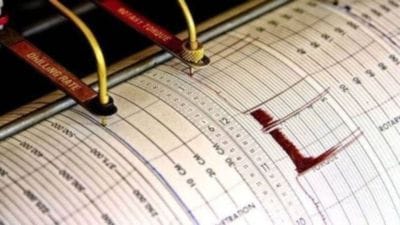For France, G20 ‘confirms isolation of Russia, condemns war’
After the bilateral meeting between Macron and Modi, an India-France joint statement said the two leaders called for early finalisation of the Defence Industrial Roadmap.
 French President Emmanuel Macron at a press conference in New Delhi on Sunday. PTI
French President Emmanuel Macron at a press conference in New Delhi on Sunday. PTI Calling India’s G20 Presidency in this “fragmented world” a “very important positive momentum” on critical issues, French President Emmanuel Macron said Sunday that “this G20 confirms once again the isolation of Russia”.
The G20 New Delhi Leaders’ Declaration, adopted Saturday, did not mention Russian “aggression” or “condemn” the Russians for the war in Ukraine. It called upon all states to “refrain from the threat or use of force to seek territorial acquisition against the territorial integrity and sovereignty or political independence of any state”.
Speaking at a press conference a day later when he held a bilateral meeting with Prime Minister Narendra Modi, Macron said, “I think we do have the same views that we must preserve balances in this current environment. We must resist the fragmentation of this world and we must work together to provide solutions to the rest of the world on what makes sense.”
The G20, he said, was not the place to expect diplomatic progress on the war in Ukraine. “This G20 confirms once again the isolation of Russia. Today, an overwhelming majority of G20 members condemn the war in Ukraine and its impact,” he said.
After the bilateral meeting between Macron and Modi, an India-France joint statement said the two leaders called for early finalisation of the Defence Industrial Roadmap.
They reiterated “their commitment to strengthen the defence cooperation through partnership in design, development, testing and manufacture of advanced defence technologies and platforms, and expand production in India, including for third countries in the Indo-Pacific and beyond”.
France, the joint statement said, reiterated its steadfast and unwavering support for India’s membership in the Nuclear Suppliers Group.
Macron’s visit to India for the Summit came within two months of Modi’s visit to Paris in July as the Guest of Honour on the occasion of the French National Day, commemorating the 25th anniversary of the India-France strategic partnership.
France has emerged as a key defence partner for India in the last few years. In July, the two countries announced supporting the joint development of a combat aircraft engine and an engine for the Indian Multi Role Helicopter (IMRH), which is being designed and developed by Hindustan Aeronautics Limited (HAL).
With the ‘Horizon 2047’ Roadmap, the Indo-Pacific Roadmap and other outcomes during Modi’s visit serving as points of reference, the two leaders, the statement said, discussed overall progress and next steps on the implementation of new and ambitious goals for cooperation in areas of defence, space, nuclear energy, digital public infrastructure, critical technology, climate change, education and people-to-people contacts.
They also carried forward their discussions on India-France partnership in the Indo-Pacific region and Africa, including in infrastructure, connectivity, energy, biodiversity, sustainability and industrial projects. They underlined their role as providers of solutions for the Indo-Pacific through their cooperation in the framework of the International Solar Alliance, launched by India and France, and the Coalition for Disaster Resilient Infrastructure.
Both leaders emphasised the need to expand their collaboration to address regional and global challenges. “They reiterated their unwavering commitment to collectively serve as a force of good, carrying the message of ‘Vasudhaiva Kutumbakam’ i.e. ‘One Earth, One Family, One Future’, during tumultuous times reshaping the global order,” the statement said.
Macron congratulated Modi on the success of the Chandrayaan-3 Moon mission. The two leaders recalled six decades of space cooperation and reviewed progress since the holding of the first Strategic Space Dialogue in June 2023.
“They acknowledged the strong India-France civil nuclear ties, good progress in the discussion for the Jaitapur nuclear plant project and welcomed the continuing engagement of both sides to expand bilateral cooperation to establish a partnership for co-developing SMR and AMR technologies as well as the forthcoming signature of a dedicated declaration of intent,” the statement said.
Laying emphasis on areas such as digital, science, technological innovation, education, culture, health and environment cooperation, both leaders called for strengthening of institutional linkages in these domains, on the model of the Indo-French Campus for the Indo-Pacific. In this context, they also reaffirmed commitment to expand cultural exchanges and work together in the development of museums, the statement said.








